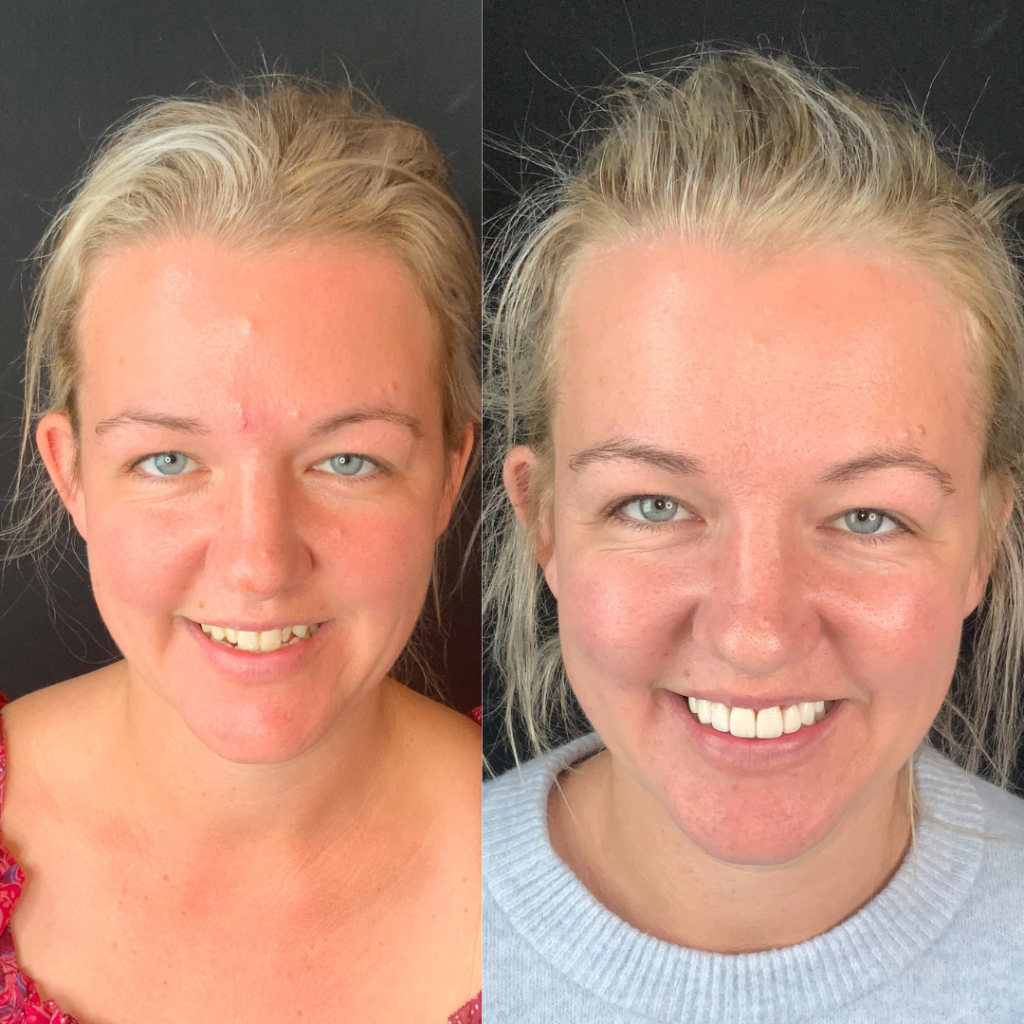Artisanally-crafted smile transformations.
Everyone deserves a smile they can love. Whether you’re looking to correct discolouration, minor misalignments, or gaps between your teeth, veneers offer a versatile and effective solution. However, with so many options available, choosing the right type of veneer can be a daunting task. Our comprehensive guide aims to demystify the various types of veneers, from the traditional porcelain and composite options to the more specialised varieties like Lumineers® and Zirconia. By understanding the unique features, benefits, and limitations of each type of dental veneers, you’ll be better equipped to make the best decision to help you achieve that winning smile.
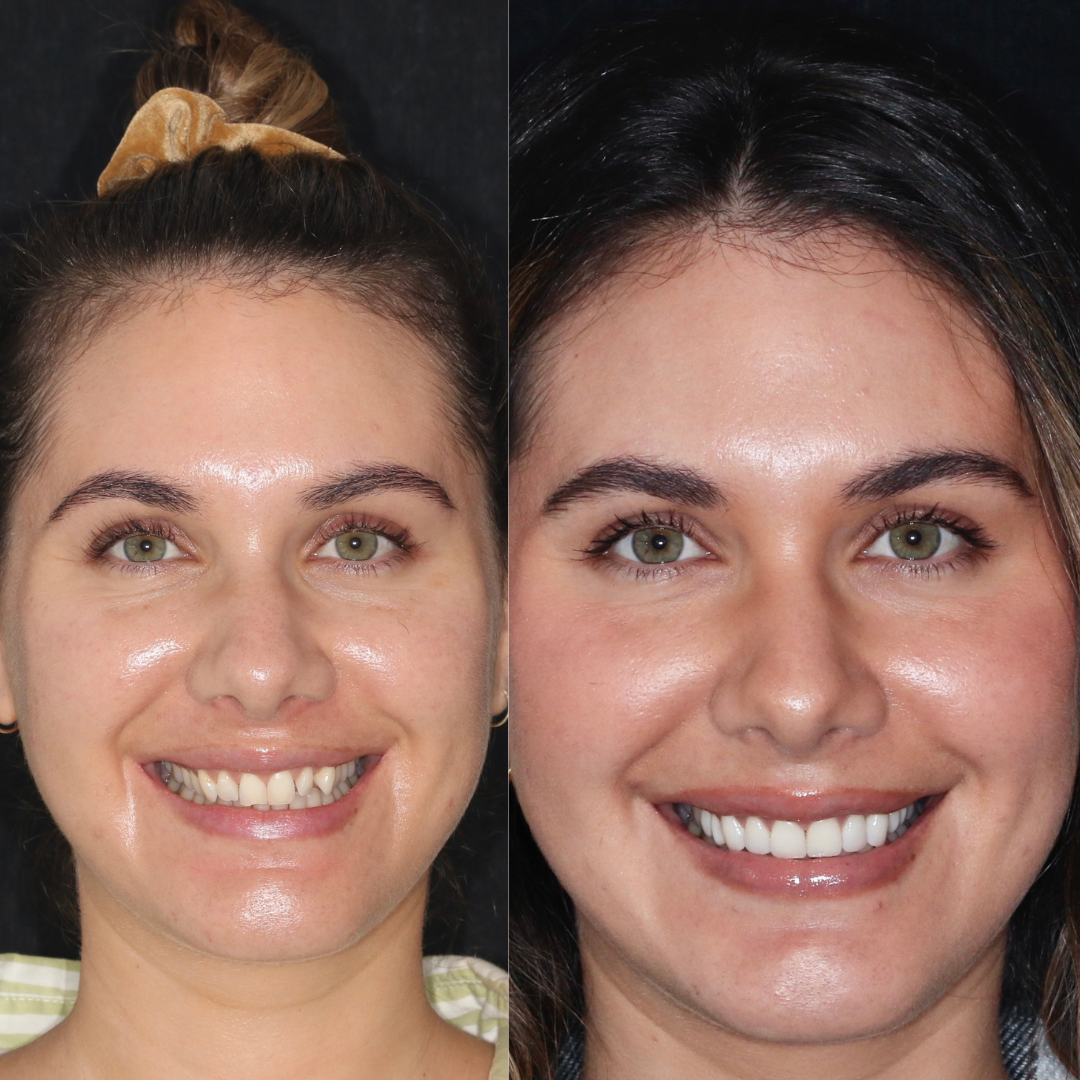
When it comes to achieving a natural-looking and long-lasting smile transformation, porcelain veneers are a favourite. These wafer-thin shells of porcelain are custom-made to fit over the front surface of your teeth to give you that perfect smile. Here’s everything you need to know about these traditional veneers.
While porcelain veneers are generally more expensive upfront compared to other types, their longevity and natural appearance often make them a cost-effective choice in the long run. Discover the power of porcelain veneers through stunning before and after images.
Made from a resin-based material, composite veneers are a cheaper alternative that is applied directly to the teeth.
While the initial cost of composite veneers is lower, their shorter lifespan (around 5-10 years) means they may need to be replaced more frequently, so costs can add up over time.

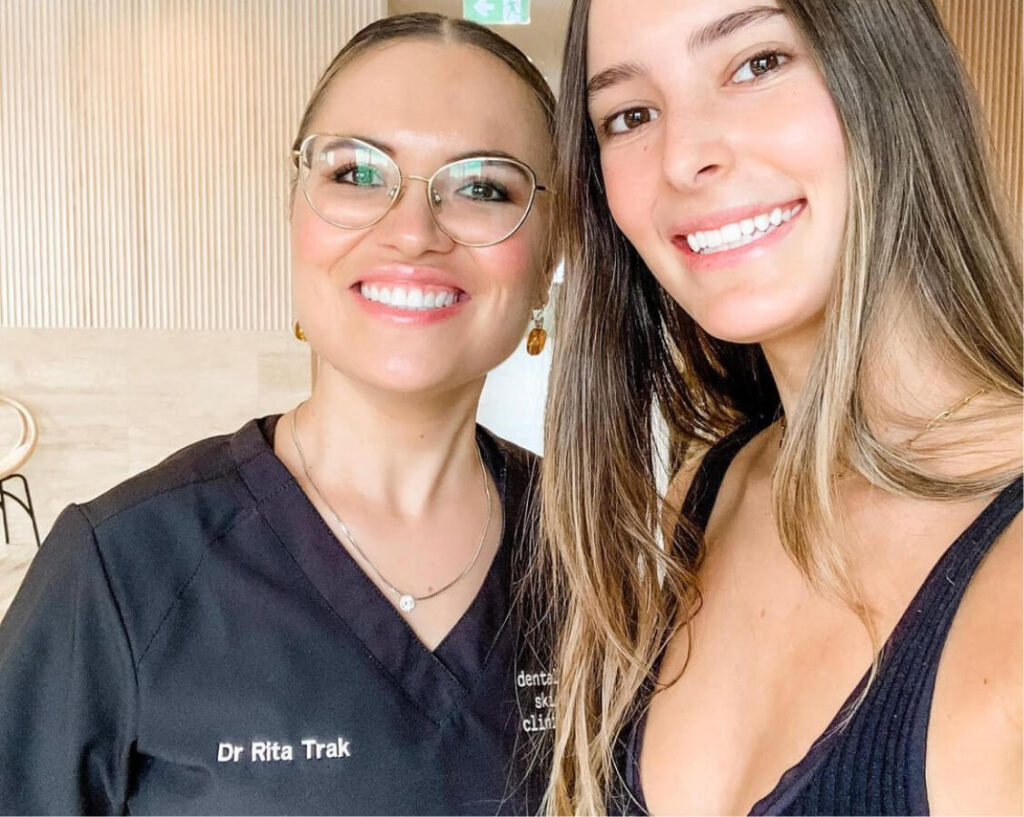
While other clinics often skip this step and go straight to having a look inside your mouth, we offer all porcelain veneers patients a V.I.P. Smile™ Deep Dive session. This initial step is the most critical component in understanding where your smile transformation fits into the context of the rest of your life.
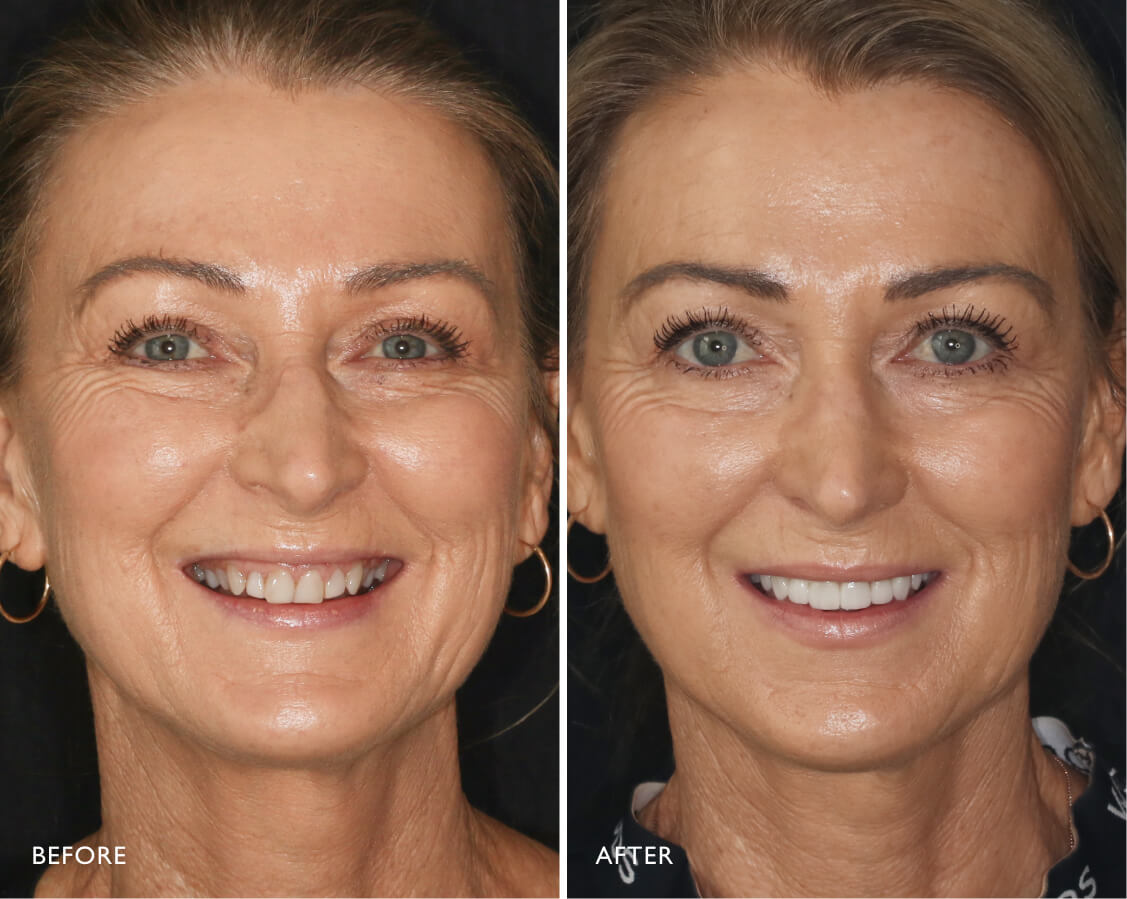
Minimal preparation veneers require little-to-no removal of the tooth enamel, so the natural tooth structure is preserved. Often referred to as “no-prep” or “instant” veneers, these ultra-thin shells are bonded to the front surface of the teeth.
The cost of no-prep veneers is often similar to, or slightly cheaper than, traditional porcelain veneers. They will also last a good 10 to 20 years with proper care, making them a great solution.
Removable veneers are a convenient and flexible option for those looking for a temporary smile makeover. The key difference is that they are not permanently bonded to your teeth and can be taken out as needed.
While removable veneers are generally more affordable upfront, they have a much shorter lifespan than other options, and aren’t a permanent solution.
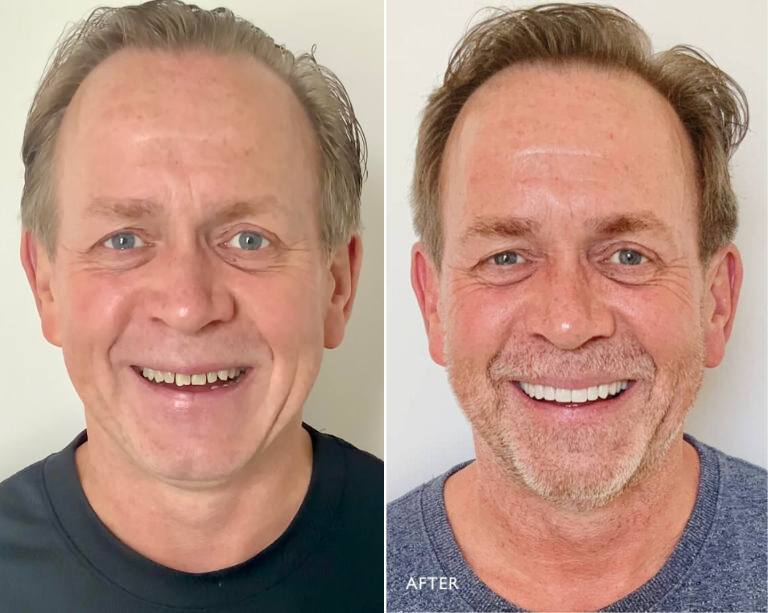
If you’ve been contemplating enhancing your smile with veneers, there’s no better time than now to take the first step. At Dental & Skin Clinic, we offer a complimentary veneer consult where our experienced cosmetic dentists will assess your dental health, discuss your aesthetic goals, and recommend the most suitable type of veneers for you. We can also let you know what you can get instead of veneers if you’re looking into other option.
Made from zirconium dioxide, a highly durable ceramic material, Zirconia veneers offer a great alternative to traditional porcelain options. Unlike other types of veneers, Zirconia veneers are less prone to chipping and cracking.
Given their premium material and longevity, Zirconia veneers are generally more expensive than other types of veneers. However, their durability and potential to last for decades can make them a cost-effective choice in the long term.
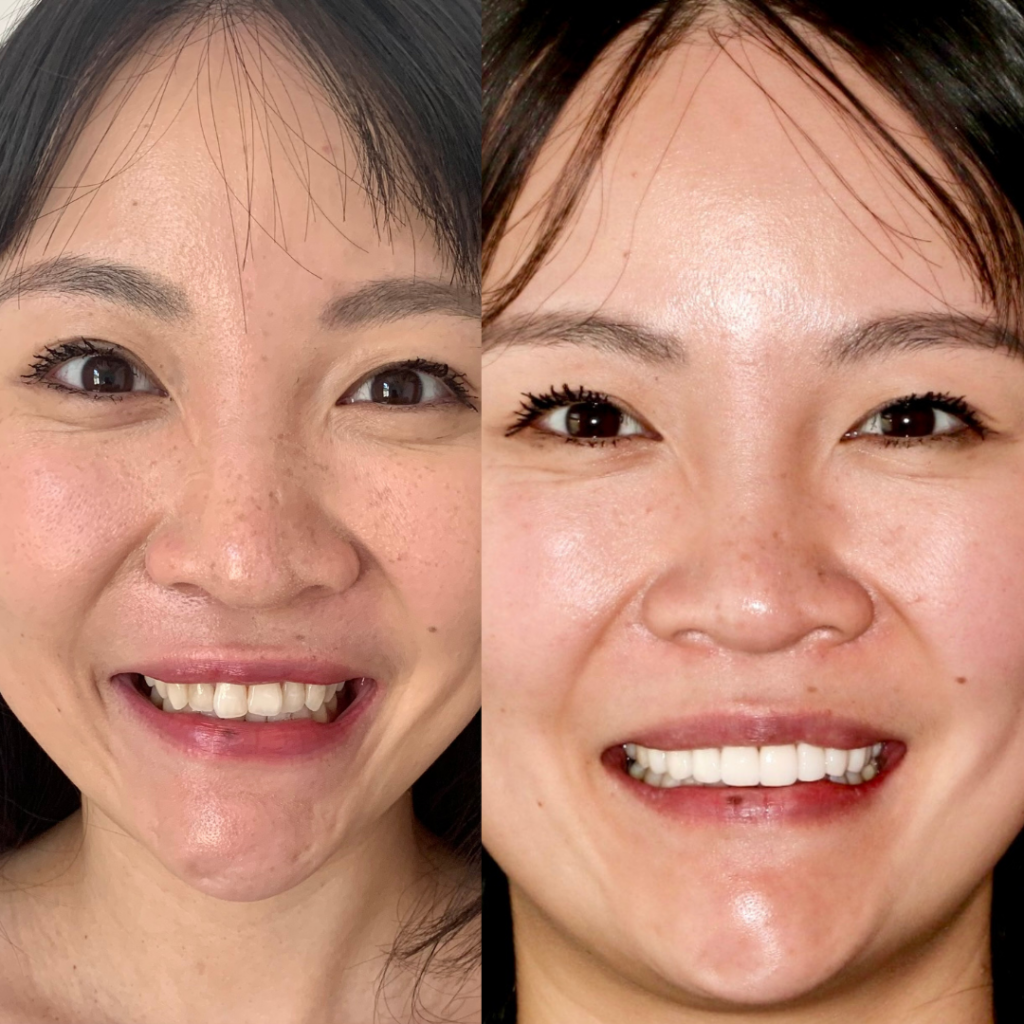
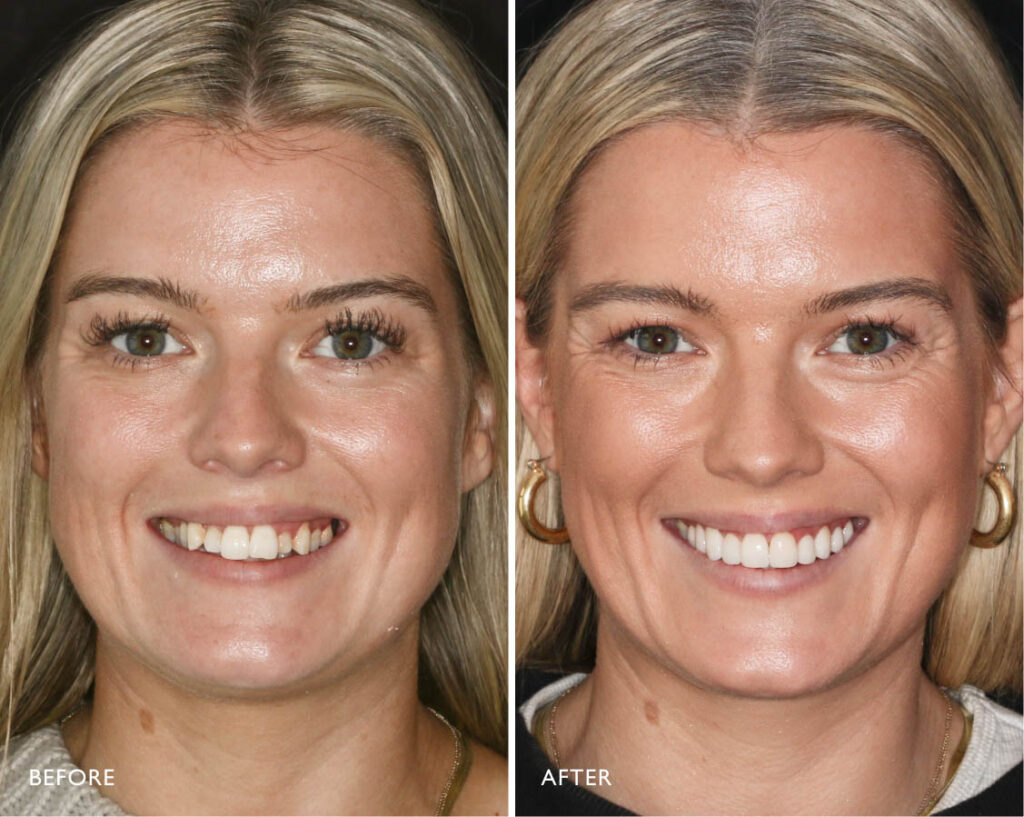
Among the various types of veneers available, Lumineers® have carved out a niche for themselves, offering a unique blend of durability and aesthetics. Lumineers® are a specific brand of ultra-thin porcelain veneers that require little-to-no tooth preparation. They are made from a patented cerinate porcelain material, which is known for its exceptional strength and translucency.
While Lumineers® are generally more expensive upfront due to the patented material and technology, their longevity often makes them a cost-effective solution in the long run. They can last for more than 20 years if properly cared for.
Feldspathic veneers hold a special place in the history of cosmetic dentistry, being one of the original types of veneers used to enhance smiles. Feldspathic veneers are made from layers of feldspathic porcelain, a material known for its ability to mimic the translucency and texture of natural tooth enamel.
Given their intricate crafting process and high aesthetic quality, feldspathic veneers are often more expensive than other types. However, they last for up to 10-15 years.

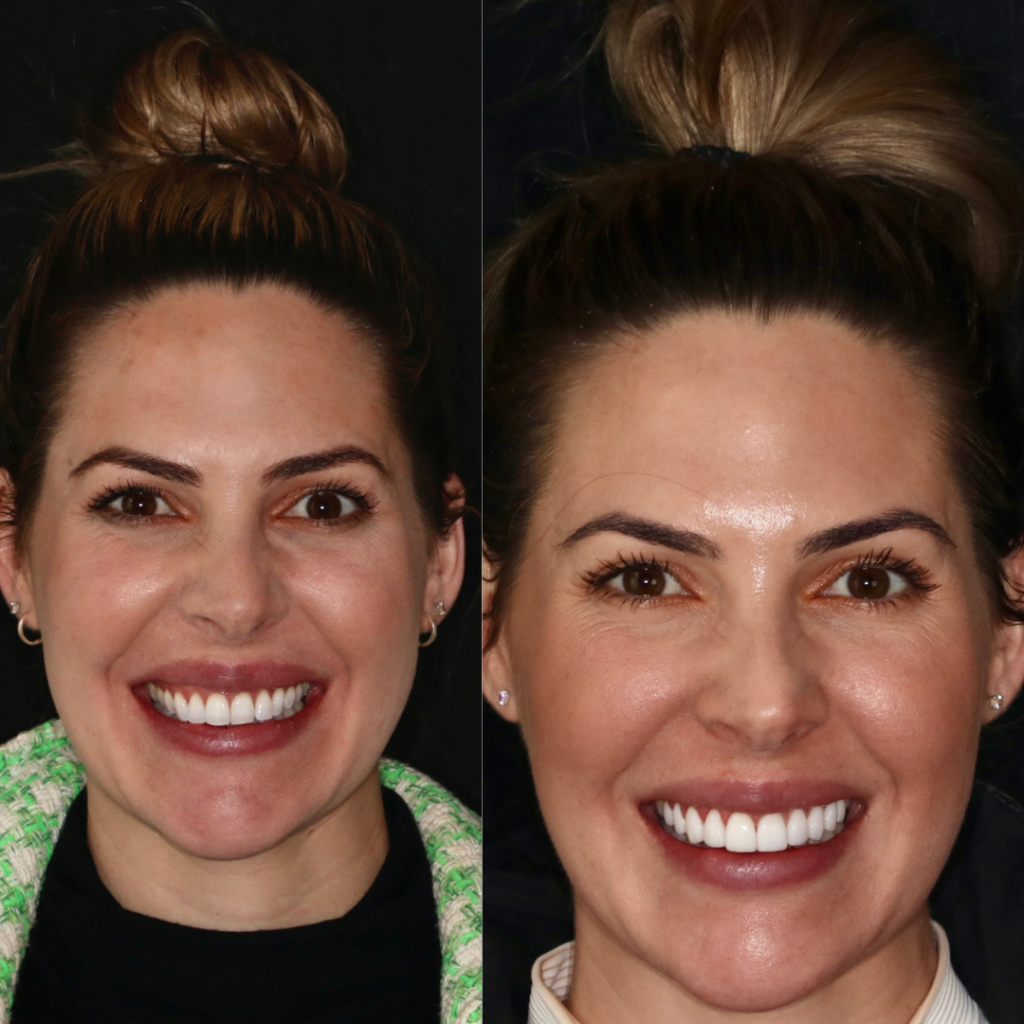
E.Max veneers are crafted from lithium disilicate, a high-quality glass-ceramic material that allows for a thinner veneer, which means less preparation of the natural tooth is required compared to traditional porcelain veneers.
While E.Max veneers are generally more expensive upfront due to the high-quality material, they offer a premium blend of durability and natural aesthetics making them a long-lasting veneer option, lasting anywhere from 15 to 20 years.
Pressed ceramic veneers are crafted from a solid block of ceramic material that is pressed into a mould to create a highly durable veneer. Unlike layered veneers, pressed ceramic veneers are made from a single layer of material, which contributes to their strength.
While pressed ceramic veneers may be more expensive upfront compared to composite veneers, they can last from 15 to 20 years.
